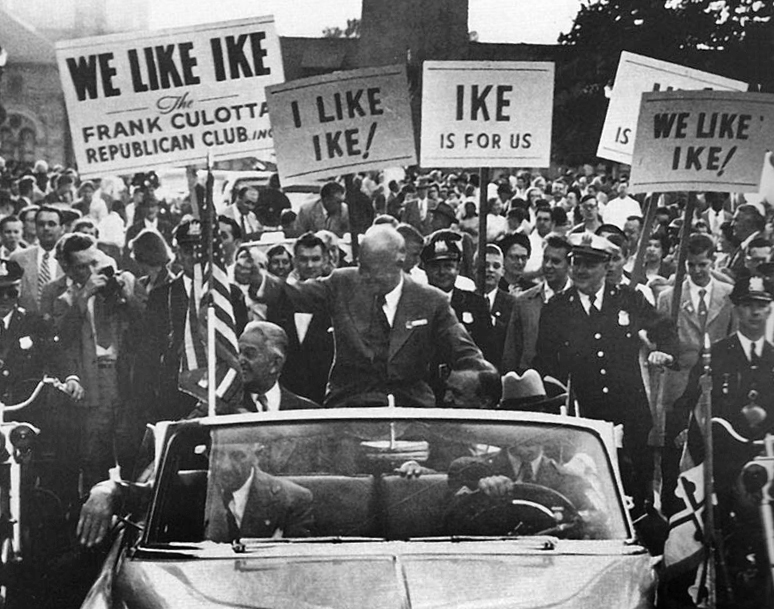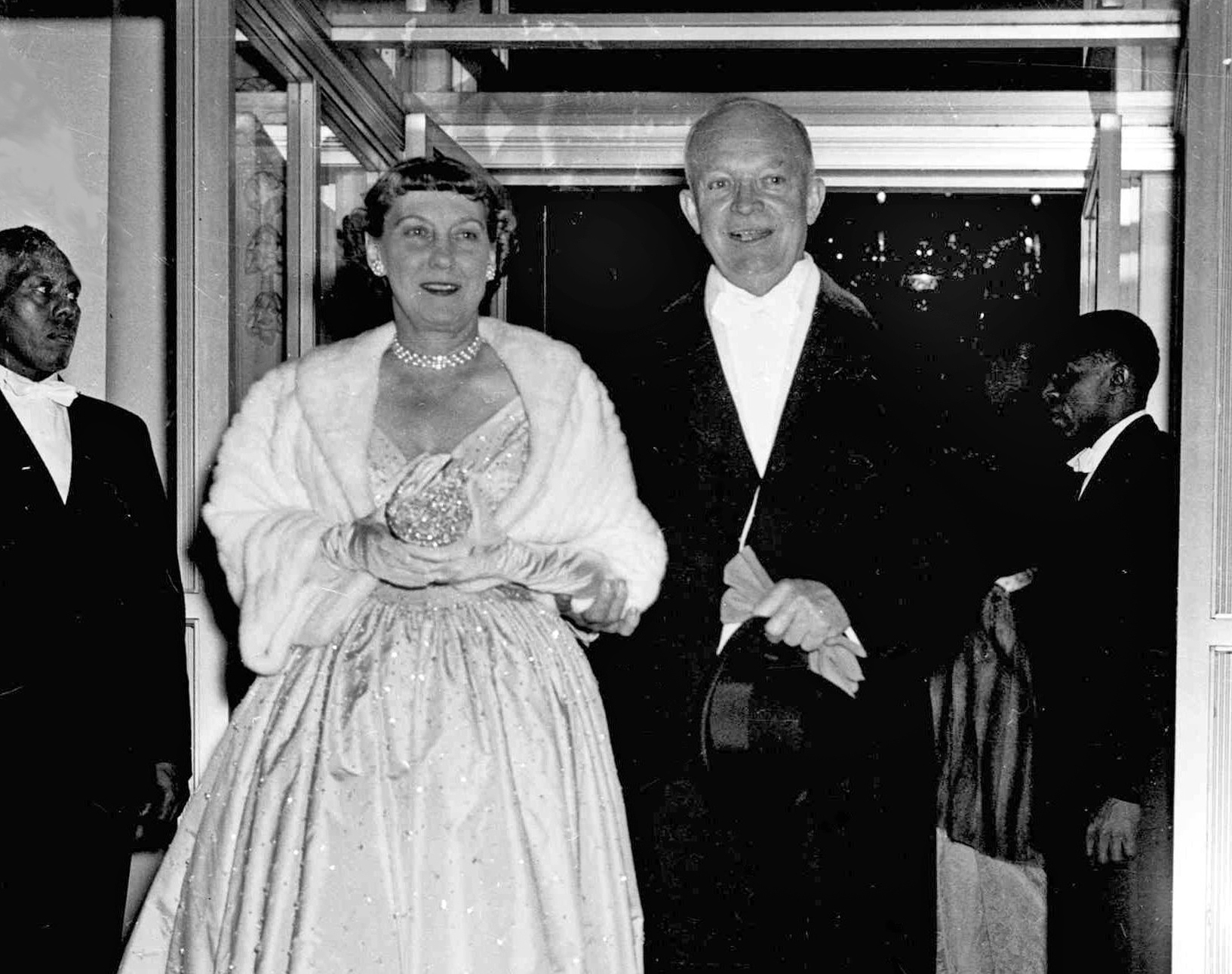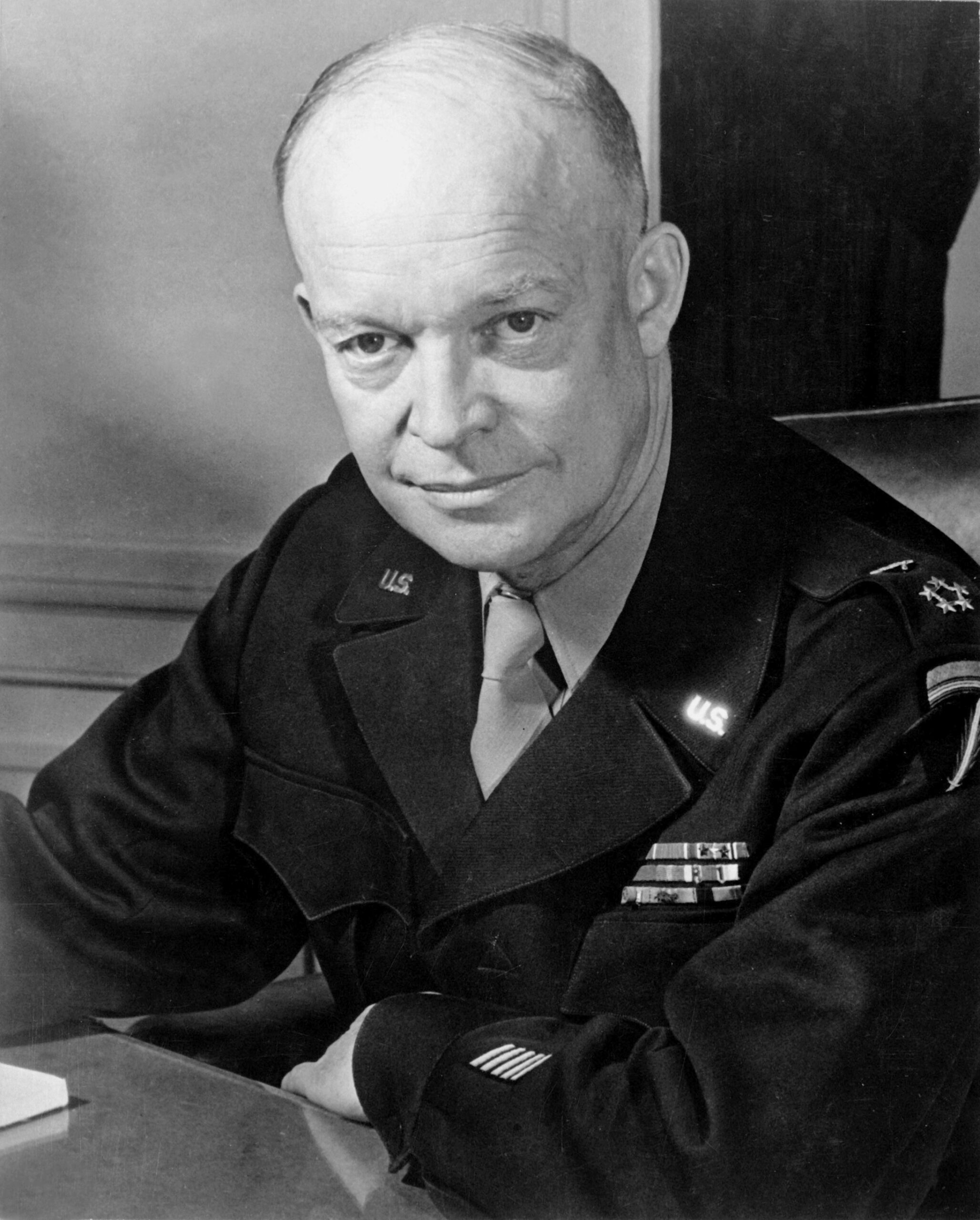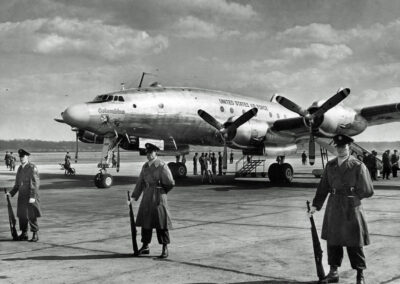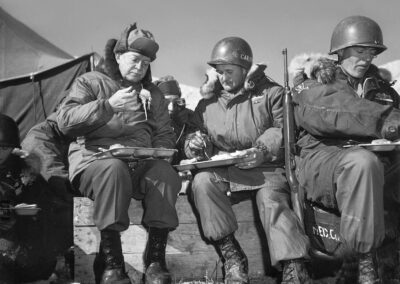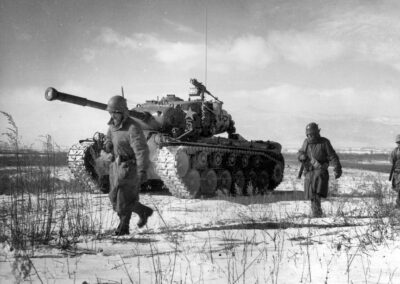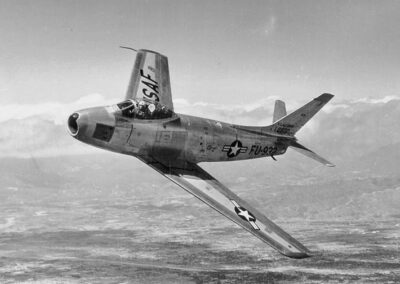Ike to Korea
November 29, 2022
On November 4, 1952, Dwight Eisenhower won the American presidential election, beating Adlai Stevenson II by a landslide. Eisenhower retained his enormous popularity from the war, as was seen in his campaign slogan, “I Like Ike.” In fact, His campaign slogan was one of the most popular in American history. Truman won an upset victory in 1948, but during the Korean War, he became extremely unpopular. His decision to fire General Douglas MacArthur as commander of United Nations forces was an important cause for public disapproval of the President. So too was the deadlock in the fighting in Korea and the broader Cold War.
Eisenhower campaigned by attacking “Korea, Communism, and Corruption,” The campaign was one of the first presidential campaigns to make a major and concerted effort to win the female vote. Many of his radio and television commercials discussed topics such as education, inflation, ending the Korean War, and other issues that were thought to appeal to women.
Eisenhower won 55% of the popular vote, 83% of the electoral vote, and carried every state outside of the South – even Virginia, Tennessee, Florida, and Texas.
A few weeks later, on November 29th, he began a 10,000-mile journey to uphold a campaign promise. The promise was to travel to Korea, experience the fighting conditions for himself, and ultimately bring an end to the conflict, once in office. The War was in a stalemate, with U.N. Forces battling it out against North Korean, Communist Chinese, and Russian backing. Without even being sworn in, he travelled to Korea, ate with the troops, engaged with his commanders, and came up with a strategy – an unprecedented move in American presidential politics.
Eisenhower concluded, “we could not stand forever on a static front and continue to accept casualties without any visible results. Small attacks on small hills would not end this war.” President Eisenhower sought an end to hostilities in Korea through a combination of diplomacy and military muscle-flexing. On July 27, 1953, seven months after President Eisenhower’s inauguration as the 34th President of the United States, an armistice was signed, ending organized combat operations under the terms of a Cease Fire.
The trip to Korea was the Eisenhower’s first trip aboard Air Force One. En route, First Air Force One would make stops in San Francisco, Midway, Iwo Jima, and finally in Seoul. The Eisenhower’s first trip in Air Force One was monumental. When American troops in Korea saw the aircraft overhead, they knew their Commander-In-Chief was there to bring an end to the conflict and bring them home.
The most frustrating war in U.S. history had come to an end, thanks to Dwight Eisenhower’s efforts. The United States had lost more than 50,000 soldiers in the war, and spent more than $70 billion. In his inaugural address, Dwight Eisenhower conveyed the sentiment that, “we must be willing, individually and as a Nation, to accept whatever sacrifices may be required of us. A people that values its privileges above its principles soon loses both.”
Dwight D. Eisenhower had not only become one of America’s greatest military commanders, he had also become the thirty-fourth President of the United States. He alone had the prestige to persuade Americans to accept a negotiated peace in Korea and convince the Chinese that failure to reach an agreement would lead to dire consequences. Eisenhower considered this to be his greatest presidential accomplishment.
Your investment in this project will allow us to leave a legacy to future generations of dignity, freedom, and peace through America’s role in today’s world.

